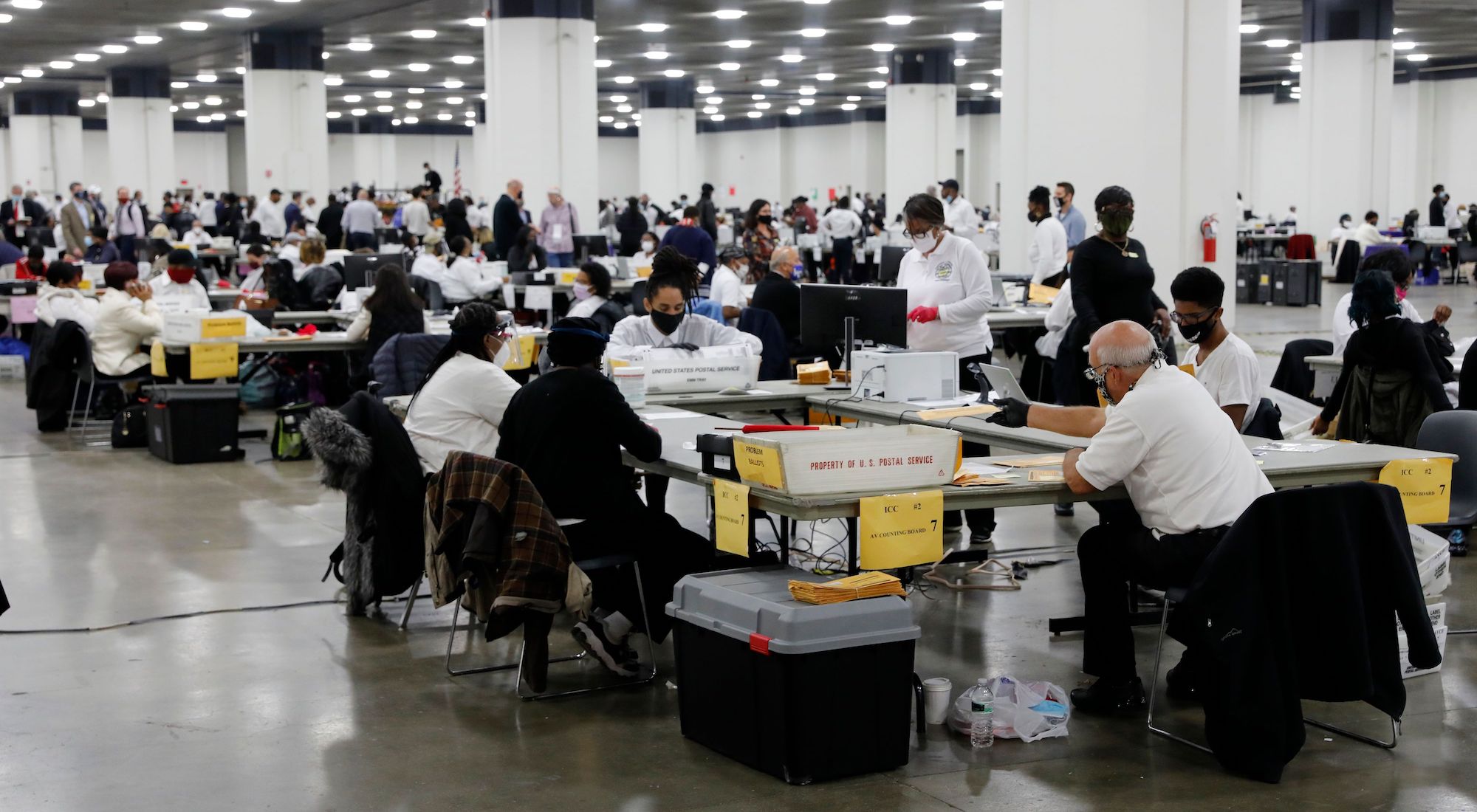We are, as a people, handing over increasingly more real-world outcomes, to say nothing of our emotional well-being, to the number-crunchers. Calculators, not conventional wisdom, are the true kingmakers of 2020. Theoretically, this makes sense: Humans are biased, and numbers don't lie. Or they're not supposed to, anyway. But what are we losing, when we cede the results business to the nerds instead of our own eyes, if not a little piece of our souls? And what do we do when putting things in the hands of the decision desks rather than the voters themselves gives us results we don't expect, or accept?
Yes, I'm talking about White Sox wunderkind centerfielder Luis Robert winning a Gold Glove Award, as presented Tuesday night on a primetime ESPN special (not that I need to remind you; I'm sure you watched). “I have always dreamed of winning a Gold Glove, so this is a dream come true,” Robert said in a statement. And I'm thrilled for him. He's a star in the making, and a delight to watch.
But we can't ignore the elephant in the room, the controversy that will no doubt keep people talking for days, if not through the end of the year: the fact that Robert beat out Twins speedster Byron Buxton for the CF Gold Glove, and did so without a single person voting on it.
It was a strange, shortened season that saw, as a measure to cut back on travel in the time of COVID, teams play only within their division, and corresponding division in the other league. To determine the 2020 Gold Gloves, polls of managers and coaches were not conducted. The logic's sound: do we really want coaches voting on players they never saw live, and thus possess incomplete information on? But what was left to decide the winners was pure math, a composite statistic called the SABR Defensive Index, which in previous years accounted for just 25 percent of the selection process.
The SABR Defensive Index draws on and aggregates two types of existing defensive metrics: those derived from batted ball location-based data and those collected from play-by-play accounts. The three metrics representing batted ball data include Defensive Runs Saved from Baseball Info Solutions, Ultimate Zone Rating developed by noted sabermetrician Mitchel Lichtman, and Runs Effectively Defended based on STATS Zone Rating and built by SABR Defensive Committee member Chris Dial. The two metrics included in the SDI originating from play-by-play data are Defensive Regression Analysis, created by committee member Michael Humphreys, and Total Zone Rating.
Nerd shit! Worse, partially proprietary nerd shit, which makes SDI a black box that we can't fully unpack, a metric that we can't fully judge on its own merits. Worser, small-sample-size nerd shit, even in a full season, but especially over 60 games. Worsest, it doesn't even give Robert the clear edge on Buxton.
Robert finished with an SDI of 5.6, and Buxton at 5.5. (To put it in perspective, Buxton's 5.5 was the fourth-highest of any fielder, at any position, in the entire American League; he was more deserving than many players who took home hardware.) Now, I'm not saying that Buxton deserved the award over Robert because though the two had nearly identical stats, Buxton ought to get credit for his inspiring and sentimental story of finally staying healthy and returning to the form that won him the Gold Glove in 2017. And I'm not saying that Buxton clearly won the eye test...
...no one is saying that here. I'm just saying that in a normal year, the voters might have taken those things into account. And that they wouldn't necessarily have been wrong to do so. But when you obstruct the will of the voters, you put more at risk than just the outcome of a single contest.






